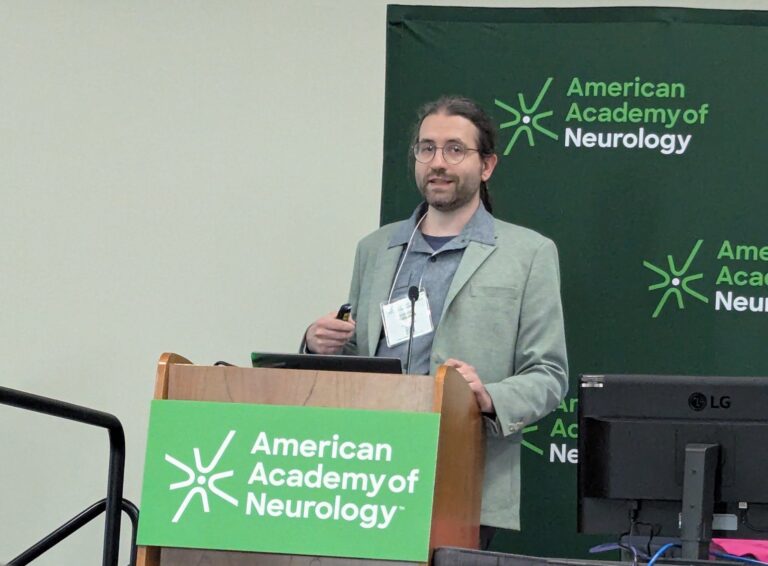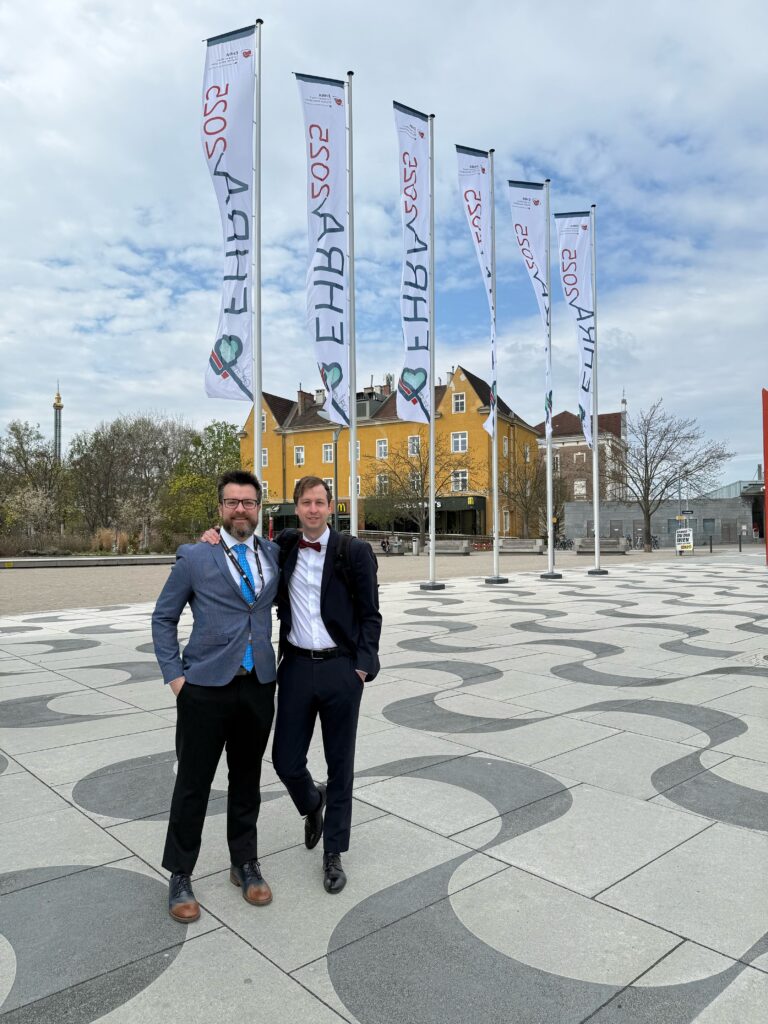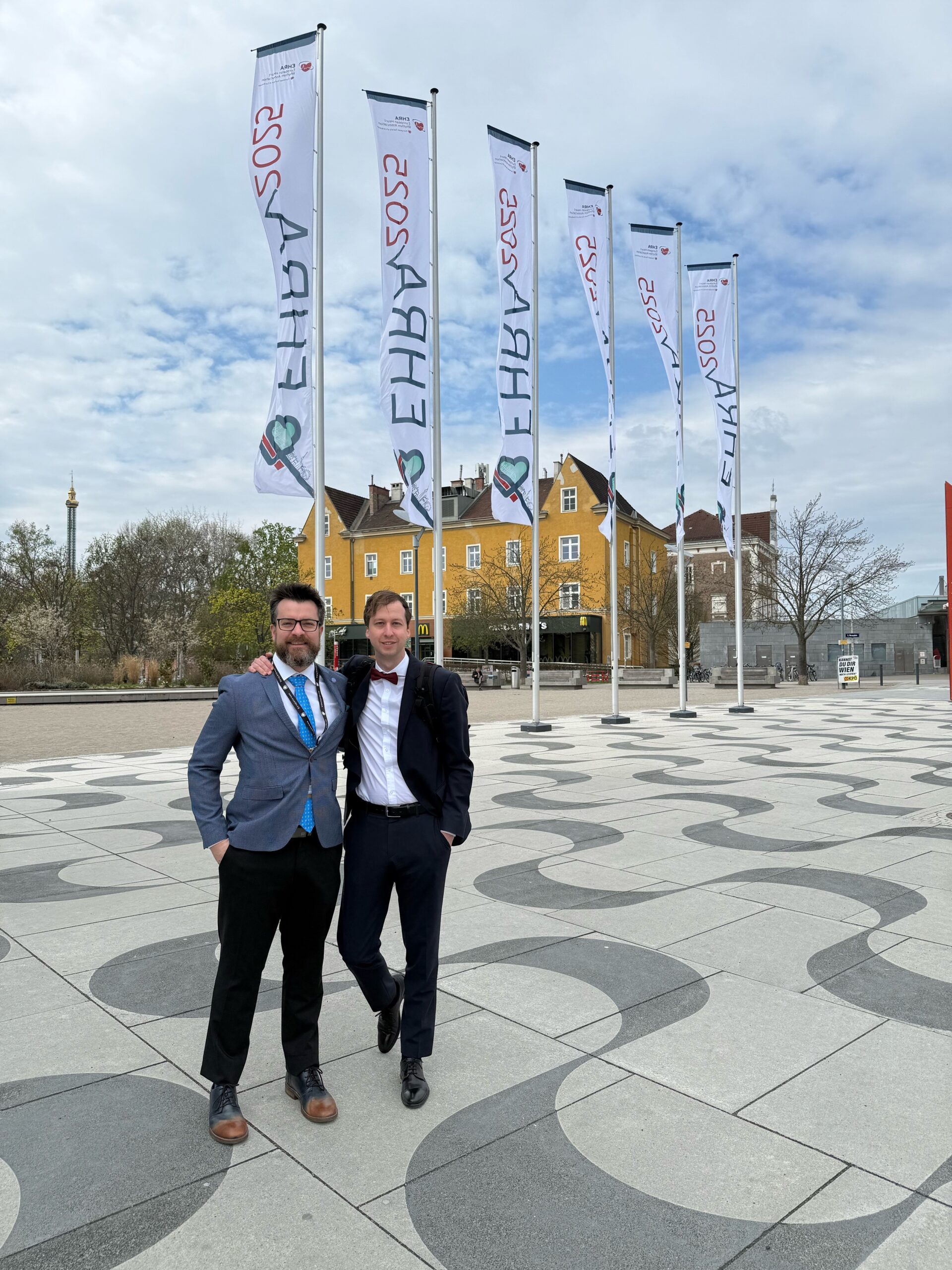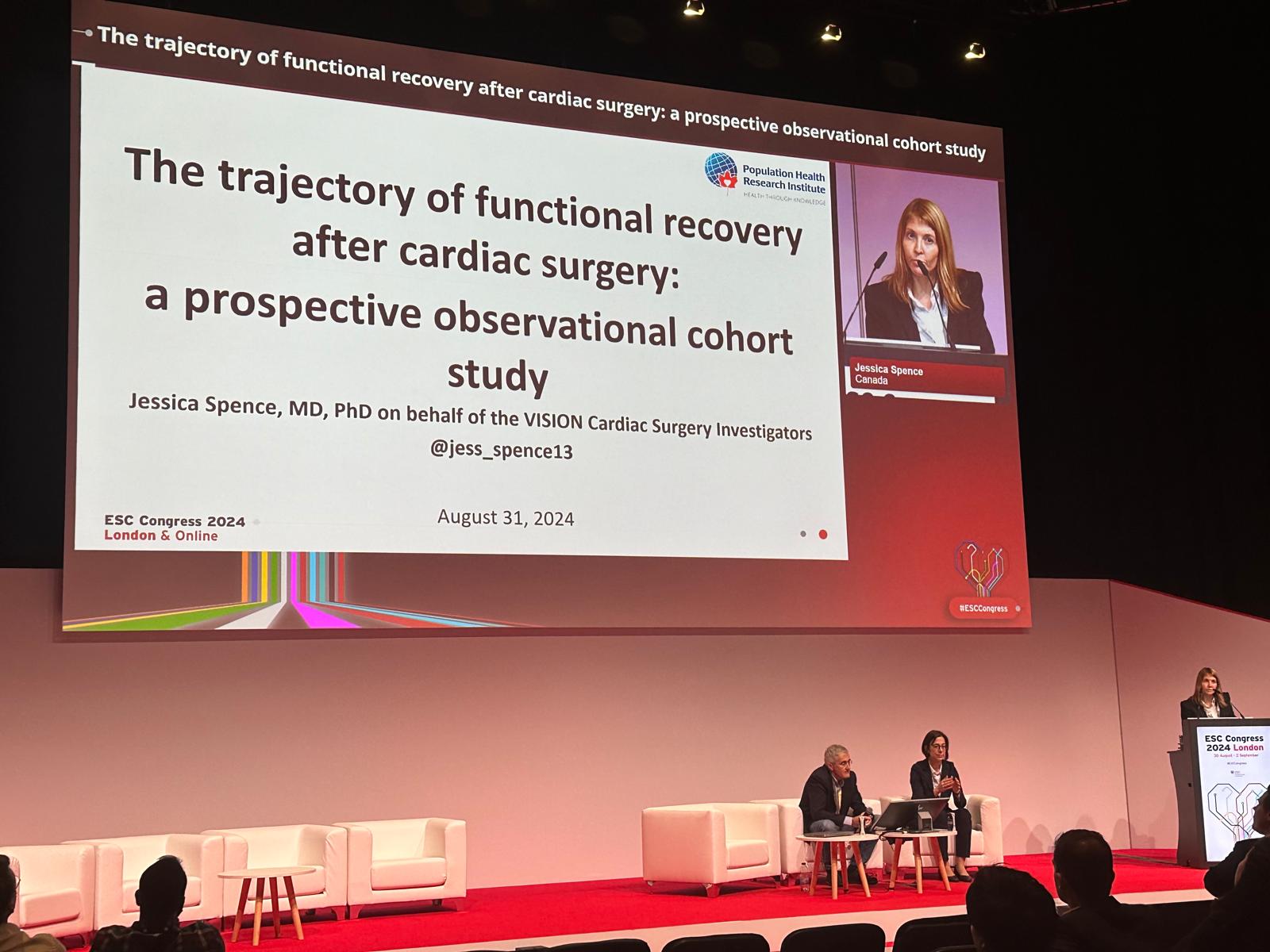
Spence presenting findings from the VSION Cardiac Surgery trial
At the European Society of Cardiology (ESC) Congress 2024, PHRI researchers presented their latest work, highlighting new approaches to managing atrial fibrillation, exploring advances in heart failure treatment, and discussing the role of artificial intelligence in cardiology.
In a Late Breaking Science session, PHRI Scientist Jessica Spence discussed the trajectory of functional recovery after cardiac surgery, presenting data from a sub-study of the VISION Cardiac Surgery study that tracked the functional outcomes of nearly 3,000 patients globally.
PHRI Senior Scientist Shamir Mehta shared insights from the EPIC STEMI trial on potential paradigm shifts in lipid-lowering therapies for acute coronary syndrome patients, particularly focusing on PCSK9 inhibitors. Mehta also chaired a session on risk factors, predictive models, and clinical outcomes in acute coronary conditions.
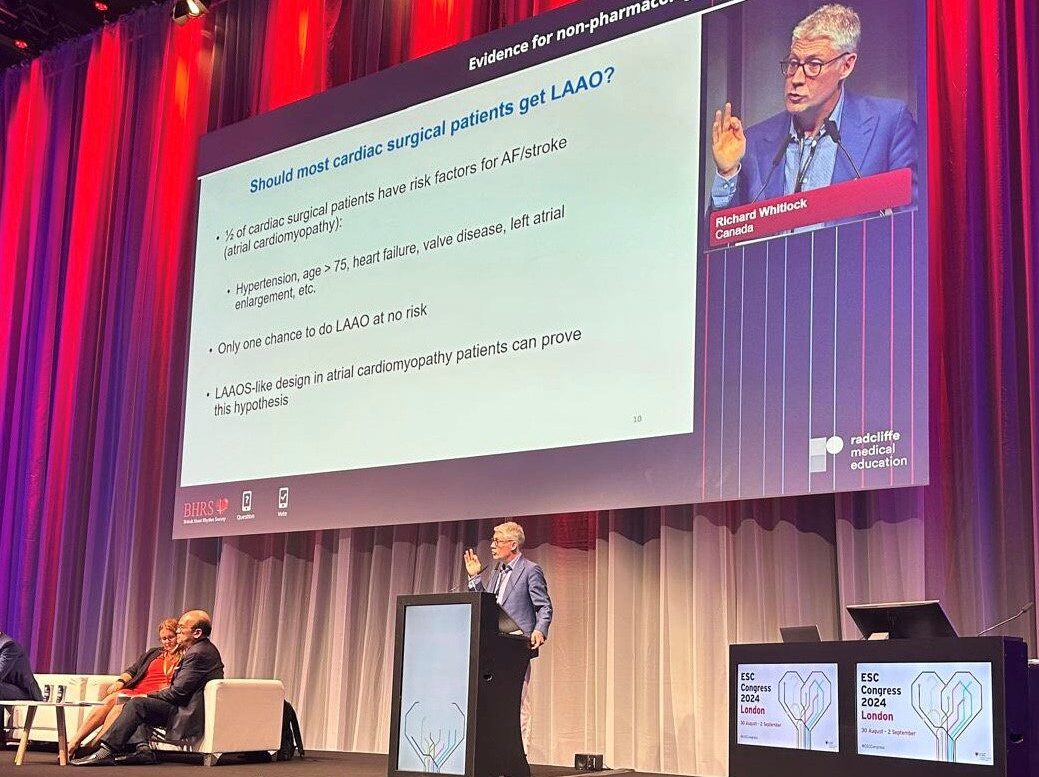
Whitlock at the ESC Congress 2024
In his turn PHRI Senior Scientist Richard Whitlock highlighted findings from the LeAAPS trial, exploring non-pharmacological approaches to stroke prevention in patients with atrial fibrillation.
As part of the session on cardiovascular disease in elderly, PHRI Investigator Sandra Ofori presented an e-poster on the POISE-3 vascular sub-study. The study evaluated tranexamic acid (TXA) in vascular surgery, finding that TXA reduced severe bleeding events at 30 days.
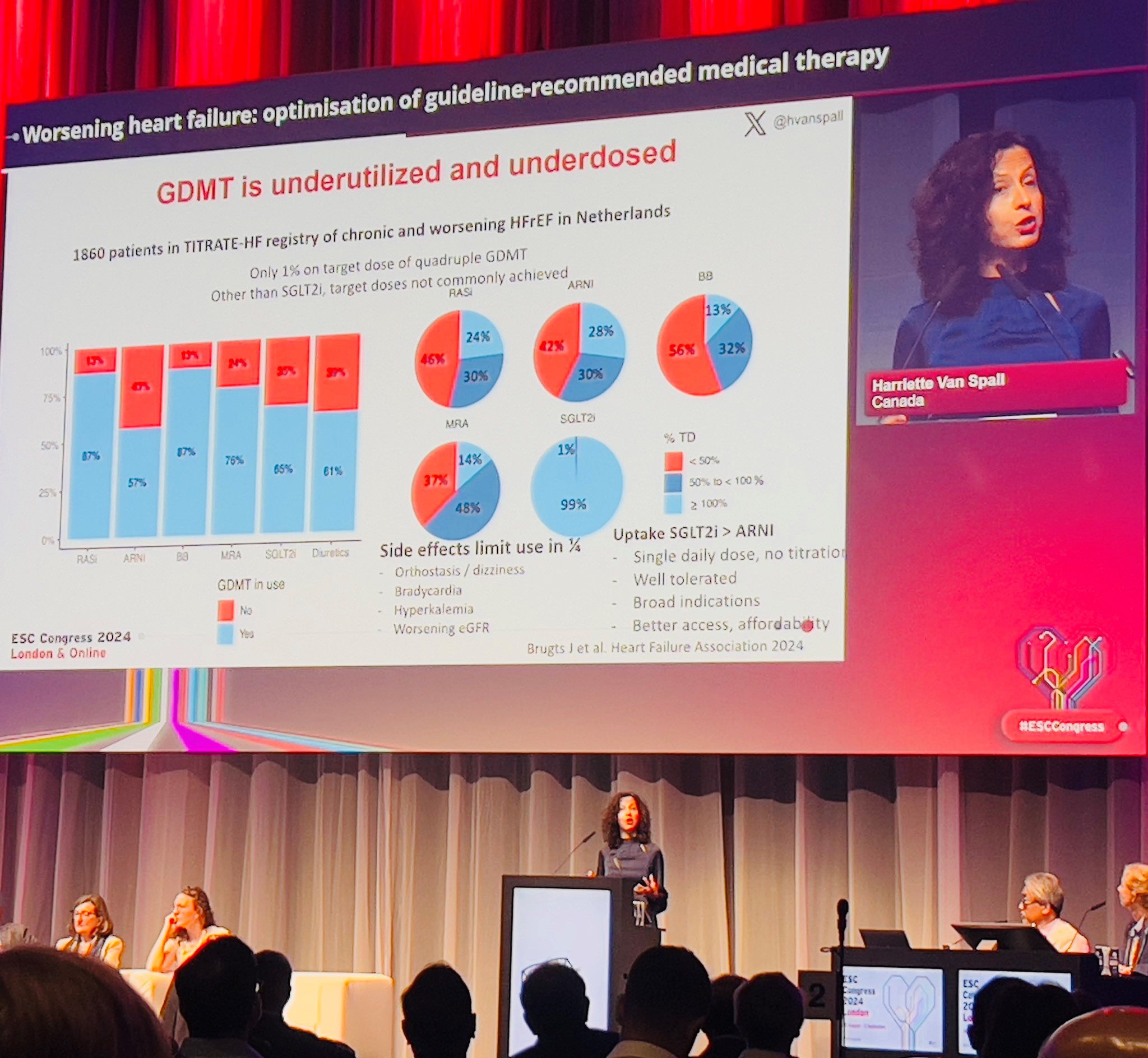
Van Spall presenting on worsening health failure
Over four days, PHRI Senior Scientist Harriette Van Spall played a key role, chairing sessions on topics such as artificial intelligence in cardiology and digitizing heart failure care. Additionally, Van Spall shared insights on optimization of medical therapy for worsening heart failure, from the PACT-HF and VICTORY-HF trials.
Tauben Averbuch, mentored by Van Spall, presented a recent analysis from the PACT-HF trial, examining long-term, sex-specific clinical outcomes and healthcare resource utilization following hospitalization for heart failure over a five-year period.
Research from the ARTESiA trial was highlighted in multiple Late Breaking Science sessions at ESC 2024. The studies addressed predictors and outcomes of atrial fibrillation progression in patients with subclinical atrial fibrillation, the impact of age on clinical outcomes in patients treated with apixaban, cognitive changes with apixaban versus aspirin, and the safety of anticoagulation in patients with device-detected atrial fibrillation.
In the ARTESiA trial
🔸31% of pts with AHRE progressed to clinical #AFib or AHRE >24h
🔸Outcome predictors: order age, HF, male sex, LA dilation, AHRE >1h@BorianiGiuseppe @WFMMD @PHRIresearch @Artesia_RCT @ESC_Journals @Dominik_Linz @DavidDuncker #ESCCongress pic.twitter.com/5iuwJ4K40R— Jacopo Imberti (@JacopoImberti) August 31, 2024
Findings on the use of artificial intelligence (AI) for ECG analysis were also presented by Associate Investigator Linda Johnson. The study, led by Johnson alongside Senior Scientist Jeff Healey, demonstrated that AI analysis of long-term ECG recordings surpasses the current standard performed by human technicians, with 14 times fewer missed diagnosis. Thus, suggesting a future shift toward AI-based diagnostic methods. Read More
@lsjMD just presented our huge endeavor in the DRAI MARTINI (coolest name for a study ever). AI was superior to technician ECG-analysis with only a modest increase in the false positive rate! Stay tuned for the paper! #ESCCongress #ESCCongress2024 @StavrosStavrak1 @CTECresearch pic.twitter.com/5tiSlyXSUI
— Stefanos Zafeiropoulos, MD, MS, PhD (@Cardiaficionado) August 30, 2024


